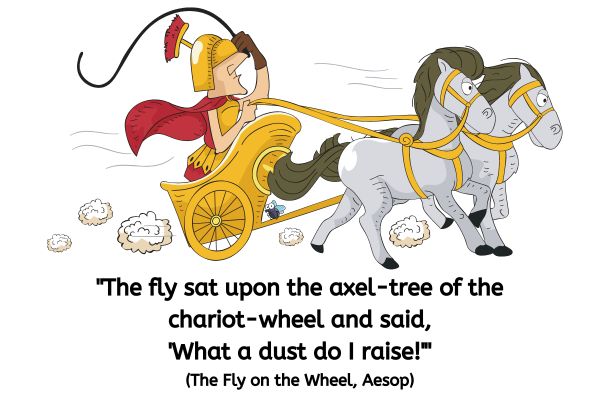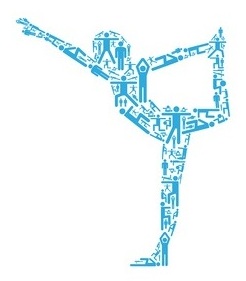Reflections on Aesop’s Fable: Embracing Humility and Perspective

Today’s quote is:
“The fly sat upon the axel-tree of the chariot-wheel and said, ‘What a dust do I raise!'” (The fly and the wheel, Aesop)
In this ancient tale, the fly perceives itself as the catalyst for change, oblivious to the fact that it’s merely riding on the wheel that’s causing the disruption. This narrative prompts us to reflect on our own actions and decisions: Are we truly the drivers of change, or are we simply passengers along for the ride, overestimating our influence?
In a world where self-importance often clouds our judgment, Aesop’s fable reminds us of the importance of maintaining a humble perspective. It challenges us to acknowledge our place within the larger context of life’s unfolding and to recognize that we are part of a bigger system.
But humility doesn’t mean diminishing our worth or downplaying our contributions.For me, it’s about gaining insight into our role within the larger scheme of things and taking our thinking lightly. It’s about understanding the real effects of our actions and appreciating the interconnectedness of all beings.
As coaches, we can often help our clients navigate what seems like a delicate balance between confidence and humility. We can encourage them to evaluate their contributions and influence while also fostering an appreciation for the broader system or community they are part of.
So, let’s take a moment today to reflect on Aesop’s timeless wisdom. Let’s consider how this fable resonates with us and how it prompts us to ensure we’re not overestimating or underestimating our importance or influence. By embracing humility and perspective, we can navigate life’s journey with grace and wisdom.
What are your thoughts on Aesop’s fable? How does it inspire you to approach your role and influence in the world? Share your reflections in the comments below.
About Jen Waller

Jen Waller is on a mission to support, nurture and encourage coaching skills and talents from non-coach to coach and beyond.
As an experienced coach and trainer Jen is happy to utilise all skills at her disposal to assist clients from getting out of their own way and making a difference in the world with their coaching. Find out more about the support Jen offers here.
